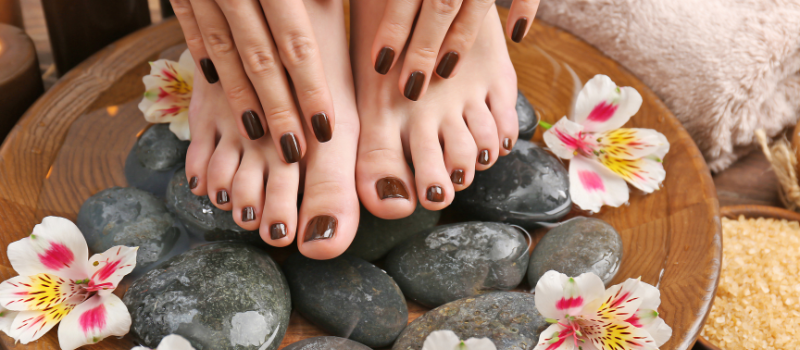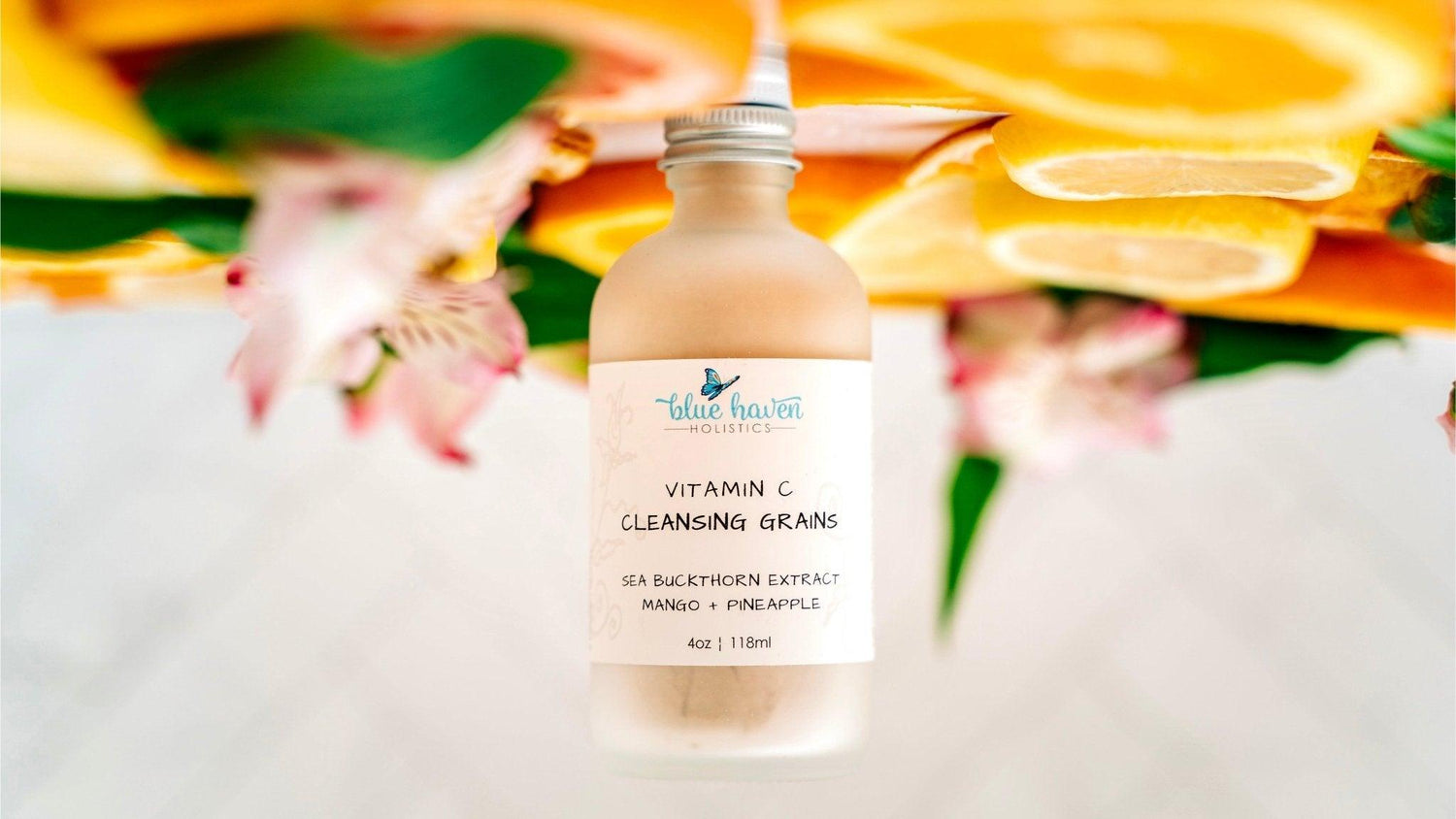A few of the common myths and truths in clean beauty explained:
When navigating the wide world of beauty, it can sometimes be challenging to separate fact from fiction. After all, there’s a lot of misinformation and conflicting advice out there.
So today, we’d like to take a minute to do a little myth busting. As they say, knowledge is power and this is especially true for skincare. The more you understand about your skin and how it works, the easier it becomes to care for it and get better results from your routine practices.
Let’s start by setting the record straight around five especially common skin myths:
Myth #1: Tight skin after cleansing means my skin is clean.
Truth: At one time or another, post-cleansing, we’ve all experienced a feeling of tightness that many people have come to associate with cleanliness.
Unfortunately, this sensation is actually a negative sign for your skin, indicating that it has become stripped of its natural oils. This is especially common when using soap, or a wash that is not pH balanced. Because the skin has a natural pH of around 4.5-5.5, cleansing formulas that are too alkaline or acidic can disrupt the skin barrier and even lead to serious damage.
Instead, a better outcome post-cleanse is a soft, supple feeling in the skin.To accomplish this, we recommend using an oil-based cleanser, instead of gel-based or foaming washes.
Myth #2: The order in which you apply your skincare products doesn’t matter.
Truth: As it happens, there absolutely is a proper order for applying your skincare formulas, if you want to ensure that each product is adequately absorbed and able to do its job. As a general rule, we want to always apply products from thinnest to thickest, using lighter, water-based formulas first, and then adding heavier layers on top, to seal in moisture and hydration.
Step-by-step, your routine should always start with cleansing, followed by toners or mists, then your serums, moisturizer, facial oils, and sunscreen, finishing with makeup products last, if desired.
Myth #3: Oily skin types shouldn’t use facial oils.
Truth: Another myth (that couldn’t be further from the truth) is that certain skin types - particularly oily skin - should avoid facial oils to prevent breakout activity or excess shine. However, the fact is that all skin types can benefit greatly from incorporating oil into their regular care routine, as it is a key component to healthy barrier function and balance.
The trick is simply choosing the right oil for your type. If you’re concerned about breakout activity, look for plant-based or botanical oils that are non-comedogenic. Facial oils work best when applied about once per day (or more if your skin is dry) in order to prevent the skin from becoming too dry and producing excess sebum to compensate.
Myth #4: Drinking more water will cure my dry/dehydrated skin.
Fact: Although drinking lots of H2O is essential for overall health, internal hydration doesn’t necessarily equate to external hydration for the skin. Because your skin is the last to receive the benefits of the water you consume, most people will still need to address skin moisture levels using topical products.
For this, your best bet is to incorporate products, such as a hydrating toner and moisturizer, with ingredients that lock in hydration, such as hyaluronic acid.
g

Myth #5: If your skincare burns, that means it’s working.
Truth: On occasion, it’s normal for some active ingredients to feel tingly for a brief moment after applying. However, happy, healthy skin should never feel uncomfortable when coming into contact with a product.
Stinging, burning, or sensitivity typically means that your barrier is damaged, that the formula you are using is too aggressive – or both. This is one instance where pain does not equal beauty. So, if a reaction results from using a product, always listen to your skin and discontinue using it.
Myth #6: You don’t need to exfoliate
Truth: This one is definitely false! With very few exceptions, all skin types and conditions can benefit from exfoliation. Exfoliation is what prevents a buildup of dead surface skin that contributes to concerns such as congestion, acne, dull skin, and rough texture. Additionally, as we age, our skin’s cellular turnover rate begins to decline, meaning we need a little exfoliation to help things along.
The important thing to note is that some skin types need more exfoliation than others. Healthy skin can usually tolerate exfoliation with an alpha-hydroxy or beta-hydroxy product 1-3x weekly. Or, if your skin is sensitive, you can still exfoliate using a more mild exfoliant, such as an enzyme mask, and adjust the frequency as needed if you experience any negative reaction.
Myth #7: You only need to wear sunscreen on sunny days
Truth: Don’t let cloudy skies fool you. Regardless of the weather or temperature, the sun’s harmful UV rays are able to penetrate through clouds, and even many types of glass.
In order to stay perfectly protected against sun spots, irritation, permanent damage, and even certain cancers, SPF should be worn every single day, any time you will be exposed to sunlight. You should also plan to re-apply regularly, as sunscreen’s protective effect tends to wear off after about two hours.
Myth #8: The more often you wash your face, the better
Truth: When it comes to washing your face, there is such a thing as too much. Cleansing the skin too often can actually disrupt your skin’s pH balance to the point that the natural protective barrier becomes compromised. When this happens the skin can become dry, irritated, or reactive to other products.
For most skin types, cleansing twice per day is plenty and sensitive skin types may even find it helpful to cleanse just once daily. You’ll also be able to avoid a lot of common woes caused by excess cleansing by choosing gentler face wash formulas, such as those that contain more oil-based ingredients.
Myth #9: Expensive skin care products work best
Truth: Some good news here is that performance of your skincare has very little to do with price point and everything to do with the active ingredients featured in the formula. In many cases, high end brands come with a hefty price tag because you’re paying for a brand name, and/or expensive packaging.
When shopping for cosmetics, a much better way to evaluate products is by reading ingredient labels. You’d be surprised to learn how many affordable options contain the same ingredients as their luxury counterparts, and can achieve the same kinds of results.
Myth #10: Rubbing alcohol will “kill” your acne
Truth: Although alcohol appears in many skin care products, there is a big difference between cosmetic grade alcohols and concentrated rubbing alcohol. Because alcohol is very harsh and drying for the skin, it should never be applied directly to the skin by itself.
Even in ingredient form, alcohol won’t do much besides overdry the skin to the point that it produces excess oil to compensate. Instead, we recommend focusing on ingredients that are actually designed to combat acne - such as glycolic acid, beta-hydroxy acids, witch hazel, or tea tree oil - all of which are much more effective and better for your skin.
Other Important Things to Know
At Blue Haven Holistics, we are always committed to helping you understand your skin and develop healthy habits for a glowing complexion? Do you have a skincare question or query you’d like us to clear up? Be sure to let us know, and we’d be happy to break it down in a future post.

References:
Everything You Need to Know About Exfoliating Your Skin Safely By Jane Chertoff
https://www.healthline.com/health/how-to-exfoliate
Hydrated Skin: Does Drinking Water Help By Lawrence E. Gibson M.D.
https://www.mayoclinic.org/healthy-lifestyle/adult-health/expert-answers/hydrated-skin/faq-20058067
Face Oils for Skin Conditions By Jenifer Goldsmith for the International Dermal Institute
https://www.dermalinstitute.com/article/face-oils-for-skin-conditions/
Five Things You Should Know About SPF By The International Dermal Institute
https://www.dermalinstitute.com/article/5-things-you-should-know-about-spf/
How Often Should You Actually Wash Your Face? By Lauren Sharkey, Medically reviewed by Cynthia Cobb, DNP, APRN, WHNP-BC, FAANP
https://www.healthline.com/health/beauty-skin-care/how-often-should-you-wash-your-face
Can rubbing alcohol get rid of acne? By Jenna Fletcher, Medically reviewed Debra Sullivan, Ph.D., MSN, R.N., CNE, COI
https://www.medicalnewstoday.com/articles/rubbing-alcohol-acne





